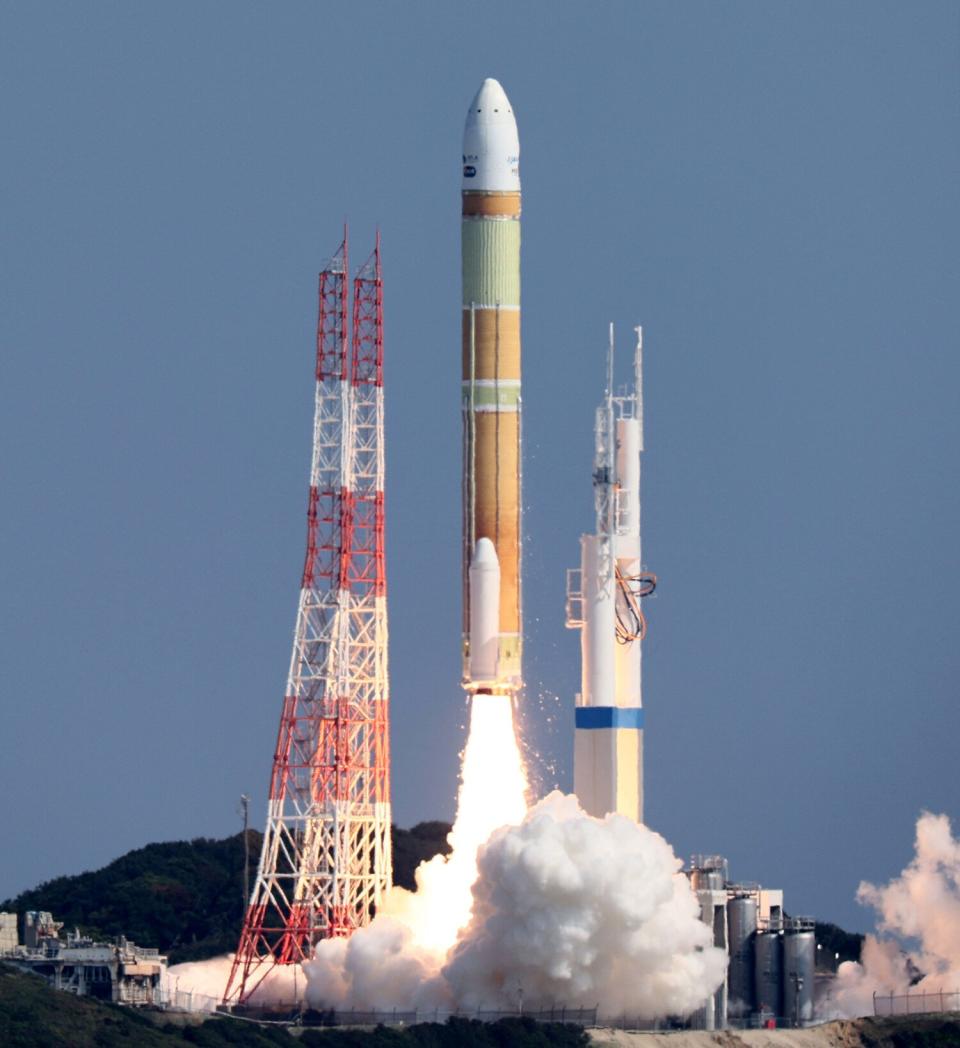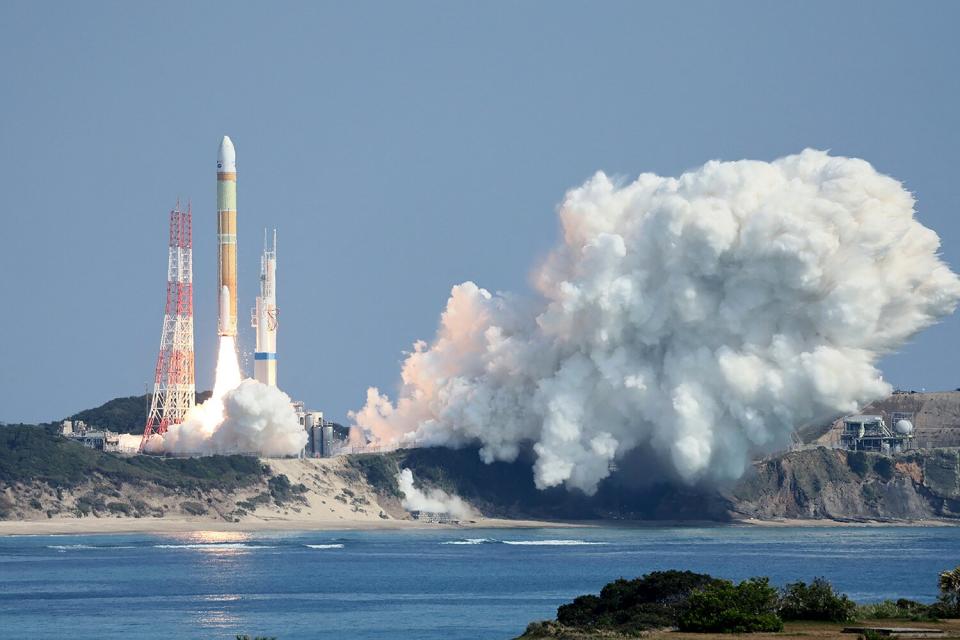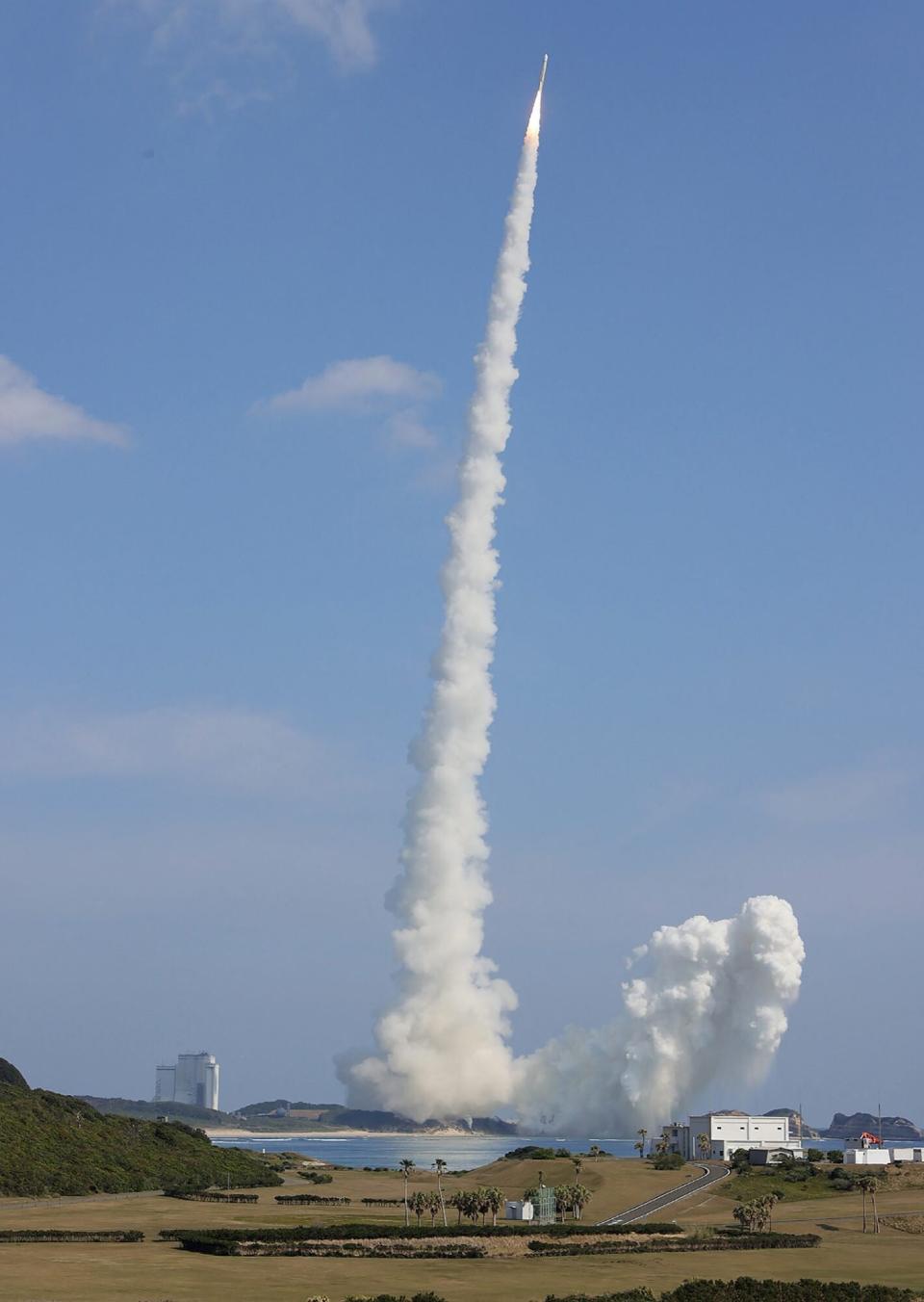Japan Self-Destructs $1.5B Space Rocket Minutes After Liftoff

Japan was forced to destroy its new $1.5 billion space rocket around 14 minutes into its debut flight Tuesday.
Japan's Aerospace Exploration Agency (JAXA) told reporters it had to issue a self-destruct command at 10:52 a.m. Japan Standard Time (20:52 EST Monday), after the rocket's ignition failed as it entered its second stage, reported Associated Press.
The 187 feet-high H3 rocket was the first medium-lift spacecraft created in Japan for around three decades and was carrying a missile-monitoring satellite called the Advanced Land Observation Satellite or ALOS-3, added BBC News.
Yasuhiro Funo, JAXA director for launch implementation, told AP that due to the ignition failure, the rocket was not going to reach its targeted orbit and therefore had to be destroyed. The debris from the rocket fell into the ocean off the eastern coast of the Philippines, the outlet added.
RELATED: Blue Origin Is Replacing Pete Davidson with Company's Rocket Architect on Next Space Flight

JIJI PRESS/EPA-EFE/Shutterstock
Japan's science minister Keiko Nagaoka said in a statement that the rocket's demise was "extremely regrettable" and apologized for "failing to meet the expectations of the public and related parties," per BBC News.
Nagaoka added that authorities would investigate what led to the engine failure after the rocket took off from Tanegashima Space Center, around 950 miles south of Tokyo.
The self-destruction follows an aborted launch of the H3 on Feb. 17., when two secondary booster engines failed to ignite on the launch pad, reported CNN.

STR/JIJI Press/AFP via Getty Images
RELATED: SpaceX Rocket Launch Canceled Just 2 Minutes Before Liftoff
"Unlike the previous cancellation and postponement, this time it was a complete failure," Hirotaka Watanabe, a space policy professor at Osaka University told Reuters.
"This will have a serious impact on Japan's future space policy, space business and technological competitiveness," he added, referring to the technological space race between companies including Elon Musk's SpaceX and France's Arianespace.

STR/JIJI Press/AFP via Getty Images
Created by JAXA and Mitsubishi Heavy Industries for approximately 200 billion yen or $1.47 billion dollars, the rocket had been touted as an economic alternative to other space rockets due to its "commercial-off-the-shelf products of other domestic industries such as the automobile industry rather than products exclusive to space use" and would have been used to launch both government and commercial missions, per CNN.
Despite the failure of the mission, however, JAXA is not giving up on creating a successful H3 rocket.
Never miss a story — sign up for PEOPLE's free daily newsletter to stay up-to-date on the best of what PEOPLE has to offer, from juicy celebrity news to compelling human interest stories.
"Our top priority is to do everything we can to find the cause and regain the trust in our rockets," said JAXA President Hiroshi Yamakawa at a joint news conference, per AP. "We need to figure out what we should do to successfully achieve the next launch."
"Delays and additional costs are both burdens, but we will achieve international overall competitiveness from the perspectives of cost and user-friendliness in delivering satellites," he added.

